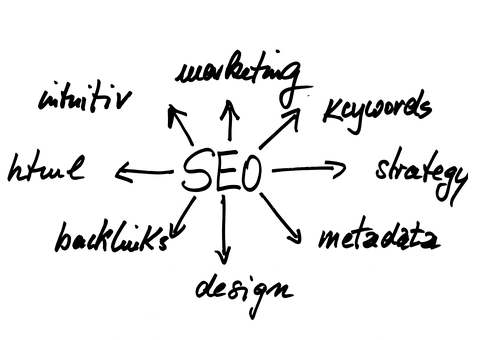In The Exhaustive Guide to SEO for Bloggers, we will take a look at how you can implement an effective strategy that will help your blog rank higher in search results. We will discuss what keywords are and why they’re important. As well as how you can find out which ones will work best for your blog. The guide also includes tips for optimizing your content. So it’s more likely to be found by people who are searching for the topic of your post or article!

The steps to optimizing your blog posts
This guide will go over all of the major points in order to help bloggers better understand how they should write their next piece (or pieces). Make them more likely to appear within search engines like Google and Bing. The goal here is not only awareness, but action. The more we know, the better we can make our blogs for readers and search engines alike!
Tips for becoming a successful blogger
The more we know, the easier it is to make our blogs as appealing as possible. The information contained in this article should help you understand how SEO works and what factors will influence your ranking.
The goal here is not only awareness, but action. The more we know, the better we can make our blogs for readers and search engines alike! The more we know, the easier it is to make our blogs as appealing as possible . The information contained in this article should help you understand how SEO works and what factors will influence your ranking.
Steps:
- The first step to optimizing your blog for search engines is adding content that people want. The more you write, the more chances there are of ranking high in Google searches and other search engines.
- The second factor that helps with SEO is writing keyword rich descriptions about each post or page on your site. That will help visitors find exactly what they are looking for when searching online.
- The third way to optimize your blog’s rankings in search results pages (SERPs) is using keywords throughout your posts without overusing them. So it doesn’t look spammy or push readers away from reading anymore of your content.
- The final thing bloggers can do is link out to reputable sources within their posts. Because this makes it easier for users who click through to get involved in whatever you’re writing about.
This will also help with your blog’s position in SERPs because it shows Google that your content is trustworthy and reputable. This means you’ll rank higher than competitor blogs who don’t link to other sources within their own posts For more information you can take a look at https://thepereznotes.com/.
Basics
Let’s start with a few basics before getting into some of these important elements: keywords , backlinks , content length/frequency, social media and metadata . The keywords you choose can be the difference between a successful post and one that falls flat. The more targeted your words , the better off you’ll be when it comes to ranking for those terms.
It is important not to over-optimize by stuffing your keyword everywhere. This will often lead to penalties from search engines like Google or Bing. While keywords are incredibly important, backlinks carry even greater weight in SEO. As they help build authority with both users and search engine algorithms alike . The higher quality of links coming into your site (and especially those pages), the easier time Google will have indexing them accordingly!
In order to keep readers interested in new content on an ongoing basis , blogging frequency matters as much as the quality of content. The more frequently you post, the higher your chances are at ranking for those terms and building authority with Google. But only if the posts themselves are high-quality!
Core concepts
SEO is a term that has been floating around in one form or another. Since 1997 when search engines like Excite and AltaVista started providing results based on their relevance to individual searches instead of simply pages with backlinks (which was previously used). The invention of Google’s PageRank algorithm brought about an entire new way we think about rankings online. Now long gone were most traffic opportunities behind paid ads, because organic search became so valuable . Since then, there have been many changes to how we rank web pages and implement SEO. But the core concepts remain.
Ranking factors
Today’s search engines are complex beasts that employ numerous ranking factors. Some of those factors revolve around traditional on-page website elements such as load speeds, HTML tags used (headers especially), alt text attributes in images, etc. The other major influence is user behavior and how people click and interact with your site has a huge impact on where it ranks! The main point here: there is no single piece of content or magic bullet that will vault you up SERPs all by itself . Optimization takes time and effort across many facets.
Conclusion:
To summarize the post briefly, Google uses hundreds of signals including links, content quality , rankings history, number of backlinks , and more to determine where your site ranks. The only way to optimize for SEO is through a multi-step strategy. That will take time and effort across many different aspects of your website. The more layers of optimization you apply and the more factors you can improve, the better your rankings will be.






